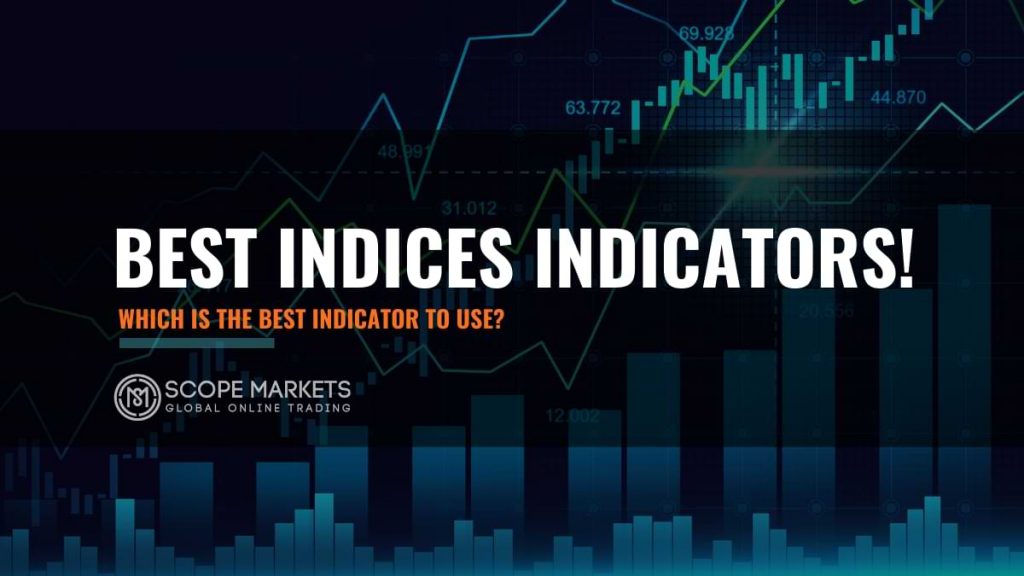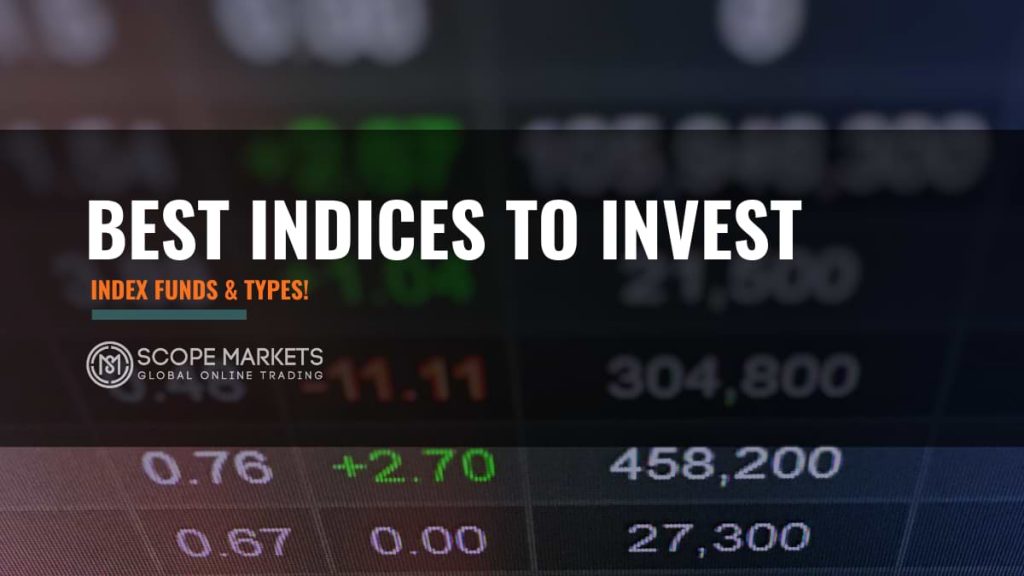How Investing in Indices Works?

Table of Content
When investors invest in indices or an index fund, they can choose many stocks in a single package. And, they do not need to buy each alone. Also, as these funds hold all the stock investments in a provided index, the management tends to be less. The outcome: Increasing investment returns for personal investors.
These funds are mutual funds that try to simulate a provided market. Also, index funds simulate the U.S. stock market, the global stock market, and the U.S. bond exchange. There are actually a lot more than checking various markets of all forms and sizes.
Each one has the same fundamental principle: Its aim is to meet that specific market return. Investing in Indices is the method of using funds to make a submissive investment plan. Index stockholders determine which markets they wish to invest in. Also, how much of their cash to keep in each one, and use index funds to set that plan in position.
Many indices check the progress of diverse segments, markets, and investment tactics daily. And, are generally used to know about the market’s strength and review. For instance, the DJIA is a widespread market index composed of blue-chip shares. Whereas the U.S. Global Jets Index checks the global airline niche as a segment index. The index may also perform as a market’s standard or method of evaluating performance.
You can’t straight go for index or Investing in Indices. As it’s wholly a scientific construct. But, you can put money into an index fund, both via indices mutual fund or an Exchange-traded fund. Many index funds follow the index, especially by holding all the index bonds. But, sometimes, a stock approximates the index with a unit of the bond. Or more derivatives like options and futures.
How does Investing in Indices Fund work?
Index funds have fund supervisors whose task it is to assure that the fund checks its basic index. As third-party indices provider develops and manages the index itself. Then, the task of the stock manager is almost easy. That is to buy the stakes that the indices provider holds in the index. And then make more buys or sales when the index provider makes the next changes to the index.
Index funds or stocks can get framed in 2 basic ways. Index mutual funds are then provided straight through mutual fund organizations. And, various brokers give access to index mutual funds in their brokerage accounts. Index ETFs or exchange-traded funds trade straight on stock markets. Thus, letting anybody a brokerage account to buy and sell stocks anytime. That is when the stock market is open for trading.
Benefits of Investing in Indices
Investing in Indices can help you keep the time and work of identifying personal investments. As well as maintaining a trading portfolio yourself. Apart from picking particular stocks or bonds, a single index fund can fast offer you a good set of expenses.
Additionally, these funds are open to all stockholders—even those who have only a moderate sum to put into, which improves investing way for many.
Furthermore, investing in indices funds eliminates irrational prejudices. That personal investor must surmount to achieve a trading portfolio very well. Some of those prejudices involve the following:
● Investing in Indices – Loss Avoidance

The worry of losing cash makes investors trade at best times. Also, invest in reduced risk assets, which wind up by offering decreased returns.
● Conventional framing
Making investment verdicts without thinking of the frame of a whole portfolio.
● Rational Accounting
Taking unnecessary risk in an area, whereas evading rational risk in other. As it is mentally parting cash into diverse buckets.
● Investing in Indices – Holding or Anchoring
Concentrating on the previous market in place of adjusting to a varying market.
● Inherent Need of Diversification
Considering a trading portfolio gets diversified despite funding in much-compared assets.
● Investing in Indices – Unreasonable Optimism
Thinking of good things will take place to you, and the wrong things will occur to others.
● Herding or Rounding Up
Following the conduct of others, which generally results in buying at high and selling at low.
● Investing in Indices – Regret or Repent
Allowing past errors to get in the means of making new verdicts.
There is the comfort of buying and retaining indices fund and the trust that the fund will match the profit. That can help deal with loss avoidance as well as diverse absurd twists. And, also hurt the personal investors‘ returns who run their portfolios.
Main things to know about investing in indices funds
Trade global indices 24/5 with leverage up to 1:500 and no requotes.
1. They are an invisible method to buy an entire market
An index fund purchases the bonds that create a complete index. For instance, if the index checks the Standard & Poor’s or S&P 500 index. That is an index of 500 of the biggest organizations in the US.
The fund purchases shares from each organization registered on the index. A shareholder, in sequence, purchases stocks from the fund. And whose worth will reflect the profit and loss of the index that is getting tracked.
2. By taking downfall, you actually gain
Selecting individual shares, you are no doubt not going to exceed the market. Not yet the pros perform. Study shows that from 2001 to 2016, over 90% of fund managers down performed their standard index.
So, adhering to market profits is a clear bet than striking the market. And, that’s only what indices funds are thus meant to perform.
3.Index or Investing in Indices funds are more common with stockholders
As per the recent survey, fast regulated mutual funds and ETFs in the U.S. noticed outflows of almost $514 billion. Whereas partly managed funds saw almost $1.6 trillion in further cash from April 2014 to 2017.
The growth of Robo-experts and tractable investing have assisted with ammunition interest.
4. Investing in Indices is accessible over a range of asset groups
Investors or shareholders can buy index funds that weigh on different firms. That is with small, normal, or big asset values. Or they can concentrate on a segment such as technology or power.
These indices are somewhat less diverse than the most comprehensive market index. But, still further than if you want to buy stocks in a few organizations within a segment.
How is investing in indices funds more useful than others?
A big benefit that indices funds have over different kinds of funds is the price. An index repository manager‘s task is only to meet the index the fund checks. And, which takes very less time than the study and portfolio control. That is then taken with well-managed stocks. Index funds are thus able to run a lot more reduced than average hard managed stocks.
Investing in indices funds have even initiated offering stocks with no costs, with a few well-managed funds providing a yearly capital ratio of 1% or higher. And, giving an index fund’s capital ratio of 0.1% or below can save you huge cash after some time.
Besides, index funds are more tax-qualified than very well-managed funds. Any time a fund administrator bargains a holding. Then, there are tax suggestions for everybody who buys stocks of the fund. As many index fund providers do not make big modifications to their indices daily. Then, index funds usually do not buy and sell assets as much.
Index fund administrators still need to fund new cash as it reaches. But, the fund can be particular of trading stocks when needed to reduce capital gains’ charges. By difference, well-managed mutual funds buy or sell positions every time. And, investors do not hold full control over the resulting chargeable gains.
A Few Examples About Investing in Indices Funds
Two index stocks emerge as explorers of the investment world, and both check the popular index of the S&P 500. The index fund of Vanguard 500 is then accredited as the initial index mutual fund. And that got started by Vanguard’s patron Jack Bogle in 1976. He needed to give shareholders a method to fund without difficulty. And, that is apart from depending on mutual fund administrators.
Investing in indices, administrators are making buy and sell decisions to win the market. His study for his senior research at Princeton made him stop well-managed mutual funds. Indeed, well-managed funds usually down-perform market standards because of high charges and costs. Vanguard has grown as a trade giant in the indices fund business, with twelve of index funds.
Next, the SPDR S&P 500 Exchange-traded fund was the main first mover in the indices ETF range. In the beginning, traded in the previous 1990s. The SPDR S&P 500 ETF lets shareholders trade funds stocks during the exchange day. Thus, giving what several saw as a benefit above the one regular trading that mutual funds permit. The organization that maintains that SPDR list of ETFs has also seen huge extensions. That is in both the index stocks it provides and the whole assets it has below management.
Reference
Fool.com/investing/beginners-guide-to-investing-in-index-funds.aspx
Nerdwallet.com/article/investing/what-is-an-index-fund
Thebalance.com/investing-in-index-funds-for-beginners-356318
Nerdwallet.com/article/investing/how-to-invest-in-index-funds
Investopedia.com/ask/answers/how-to-invest-in-an-index/
Investing in Indices – Final words
Investing in Indices can be performed indirectly. But, indices mutual funds and ETFs are now very free, affordable to own, and may occur with 0 charges. They are an ideal fix-it-and-ignore-it index choice. Thus, indexing yourself needs time and exercise. That is for investigating and making the perfect portfolio.
Also, can be expensive to put in place. Derivatives trading uses expert insight. And, generally needs to create a margin account. That comes with options and futures trading support. And, will need you to move positions before they stop.
Disclaimer: This material is a marketing communication and shall not in any case be construed as an investment advice, investment recommendation or presentation of an investment strategy. The marketing communication is prepared without taking into consideration the individual investors personal circumstances, investment experience or current financial situation. Any information contained therein in regardsto past performance or future forecasts does not constitute a reliable indicator of future performance, as circumstances may change over time. Scope Markets shall not accept any responsibility for any losses of investors due to the use and the content of the abovementioned information. Please note that forex trading and trading in other leveraged products involves a significant level of risk and is not suitable for all investors.










